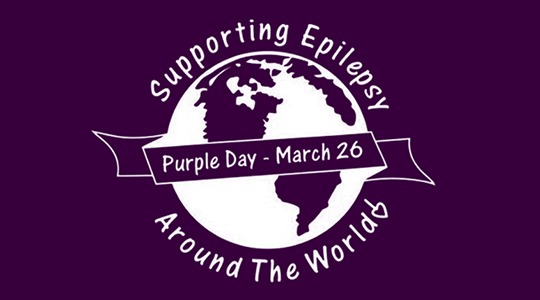March is epilepsy awareness month. We think there’s no better time to shine a light on what this disorder involves and how people living with the condition can manage it.
What is Epilepsy?
According to Epilepsy Australia, Epilepsy is a neurological disorder marked by convulsive or non-convulsive fits. 10% of the Australian population are at risk of having a seizure in their lifetime, while 3-4% will go on to be diagnosed with epilepsy.
Epileptic seizures occur when the brain’s nerve cells – which carry messages to other cells through electrical impulses – misfire. They generate sudden bursts of electrical activity which scramble communications and cause seizures.

What Causes It?
In 50% of cases, the cause is unknown. Genetics can play a role and it is known that structural abnormalities in the developing brain and infections such as meningitis can cause epilepsy. Brain injuries can also predispose an individual to developing it; sometimes years later. The severity varies – some people are prone to having more seizures than others. (Epilepsy Australia).
How Does it Impact Lives?
Seizures can make it difficult to go to work or school, drive or take part in daily activities. They can cause injury, anxiety and depression and in some cases, death.
However, with careful management, people living with epilepsy can engage in many normal activities and lead productive lives.
Managing Seizures
Effective management requires a close relationship between the person with Epilepsy, family and friends and healthcare providers. Self-care is a priority, including the following key points:
- Taking Epilepsy medication. About 80% of sufferers can control seizures well with medication.
- Having good connections with healthcare providers
- Getting enough sleep
- Exercising regularly and safely
- Making friends and family aware of areas where you need support
- Lowering stress and recognising triggers
Assistance Available
People with severe epilepsy are eligible for the NDIS (National Disability Insurance Scheme). To be eligible for the NDIS, you need to have a permanent impairment which significantly affects your ability to participate in everyday activities, and will be likely to last your whole life.
Funded Supports may take the form of Seizure Management training, or Support Workers for certain activities. This Fact Sheet from Epilepsy Action Australia breaks down some of the most commonly asked questions.
March 26th is ‘Purple Day’; Epilepsy Australia are urging people around the country to help end the stigma and ignorance about the condition. Join us in wearing the Purple Ribbon and supporting people with Epilepsy and their families.








